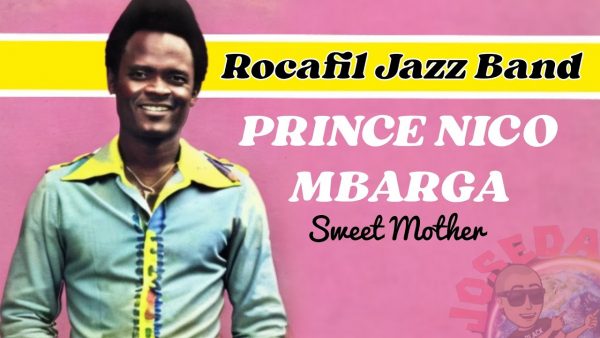Nigerian gospel music, deeply rooted in Christian theology and indigenous traditions, often serves as a medium for spiritual expression and cultural identity. However, the boundaries between secular and gospel music occasionally blur, as seen in the remarkable journey of “Sweet Mother,” a song originally composed by Prince Nico Mbarga in 1976. This highlife classic, initially a secular ode to maternal love, has transcended its origins to become a staple in Nigerian gospel contexts. This article explores how “Sweet Mother” evolved into a gospel classic, examining its cultural resonance, adoption in religious settings, and the broader implications for Nigerian music.
Read more about Gospel music
Cultural Resonance and Universal Appeal
“Sweet Mother” emerged during Nigeria’s post-civil war era, a time when highlife music dominated popular culture. Written in Pidgin English, the song’s lyrics celebrate the unconditional love of mothers, resonating with listeners across ethnic and linguistic divides. Its universal theme of maternal devotion aligns with Christian values of love and sacrifice, which scholars like Adeola argue facilitated its crossover into gospel spaces. Unlike explicitly religious compositions, “Sweet Mother” lacks overt theological references, yet its emotional depth mirrors the reverence for familial bonds found in Nigerian Christianity. A 2022 study in African Musicology notes that its melodic simplicity and repetitive chorus made it adaptable for communal singing, a hallmark of gospel music. Today, it remains a cultural artifact, often performed at secular and religious events alike, illustrating its enduring appeal.
Register to attend the Connect Nigeria Business Mixer
Adoption in Religious Contexts
The transition of “Sweet Mother” into Nigerian gospel settings exemplifies the flexibility of musical genres in Africa. Churches, particularly in southeastern Nigeria, began incorporating the song into services as early as the 1980s, reinterpreting it as a tribute to the Virgin Mary or a metaphor for divine care. A 2023 article in The Guardian Nigeria reported its use during a Mother’s Day service at St. Andrew’s Anglican Church in Enugu, where congregants sang it alongside traditional hymns, highlighting its sacred reinterpretation. This adaptation reflects what Adegbite calls the “continuity of Yoruba socio-religious music,” where secular forms are repurposed for spiritual ends. Social media platforms like Instagram further amplify this trend, with gospel artists like Sinach posting acoustic renditions of “Sweet Mother” in 2024, captioned as a “song of gratitude to God,” blending secular origins with worship.
Sign up for the Connect Nigeria daily newsletter
Implications for Nigerian Music
The secular-to-gospel shift of “Sweet Mother” underscores broader dynamics in Nigerian music, where genre boundaries are increasingly porous. Scholars like Ojo argue that this hybridization reflects a “social reconstruction” through indigenous gospel music, merging entertainment with spirituality. The song’s success challenges the notion that gospel music must originate from explicitly Christian intent, prompting debates on authenticity in religious performance. Its prominence on platforms like Boomplay, where it ranks among top-streamed “gospel-adjacent” tracks in 2025, signals a market-driven acceptance of such crossovers. This evolution invites further study into how secular music shapes religious pedagogy, as seen in contemporary Nigerian pop gospel trends.
Got a suggestion? Contact us: [email protected]
Conclusion
“Sweet Mother” stands as a testament to the adaptability of Nigerian music, transforming from a secular highlife hit into a gospel classic. Its cultural resonance, adoption in worship, and influence on genre fluidity highlight the interplay between tradition and innovation. As Nigerian gospel music continues to evolve, “Sweet Mother” remains a compelling case study of unexpected sanctity.


